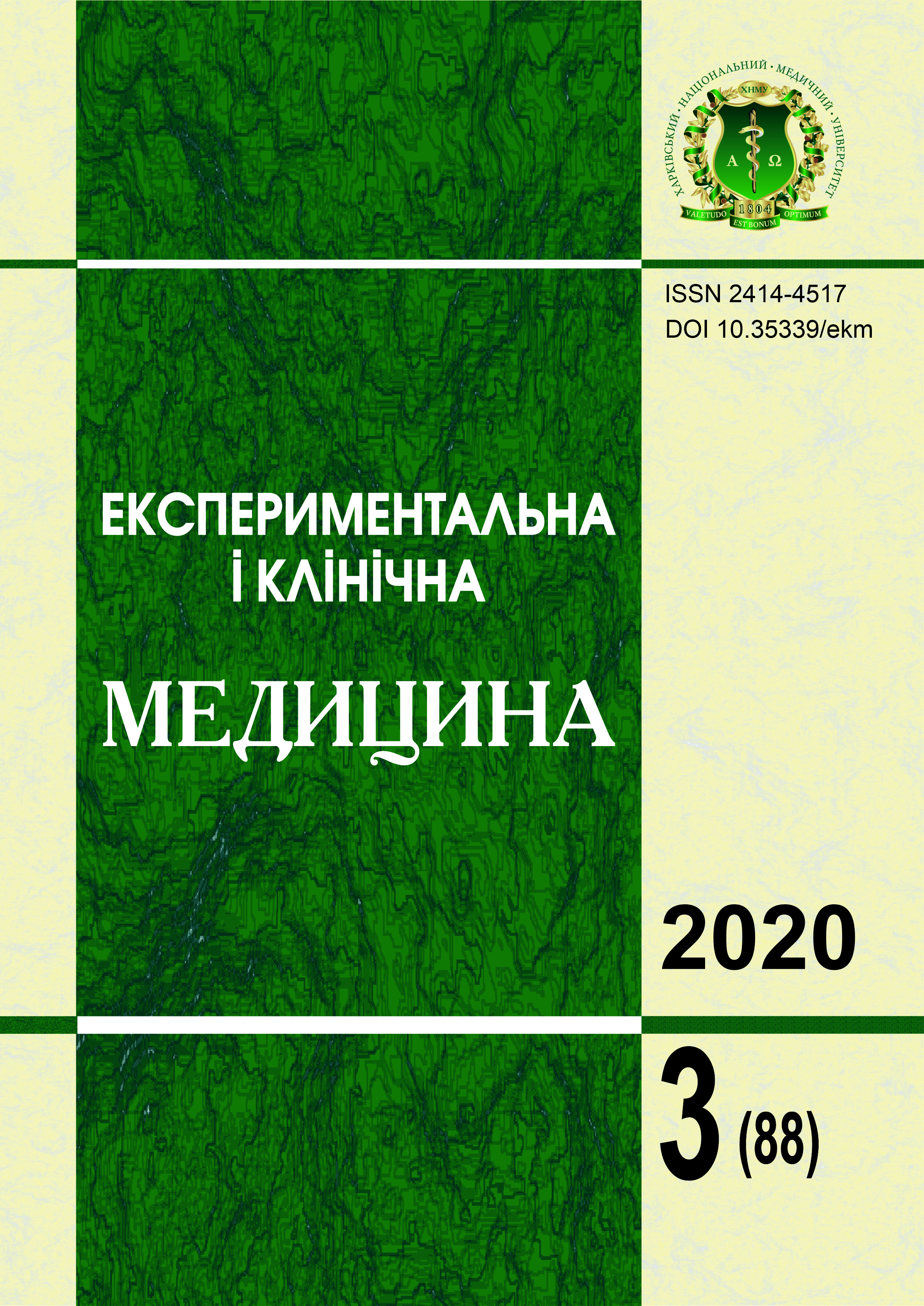Abstract
The study involved 98 patients with a prolonged depressive reaction. The majority of patients had a predominance of anxiety, apathetic-dynamic, obsessive-depressive and senescent-hypochondriac symptom complexes. Anxiety symptom complex was associated with catastrophism, hypochondriac ideas, increased selectivity of attention to negative stimuli, obsessive thoughts, increased sensitivity to criticism, weak visual-motor coordination disorders, decreased switching, average mental performance, mobilization, accusation of others, weak violations in the field of personal and social interaction, moderate violations in the field of aggressive patterns of behavior. Apathetic-adynamic symptom complex was associated with difficulties in decision-making, weak disorders of visual-motor coordination and executive functions, weak disorders of verbal performance, low levels of switching attention, reduced selectivity of attention to neutral and negative stimuli, weak personality disorders and social activities, and social interaction. Obsessive-depressive symptoms correlated with obsessions, mild executive impairments, ruminations, decision-making difficulties, low levels of switching, and mild personality and social impairments. Senesto-hypochondriac symptom complex was associated with hypochondriac ideas, obsessive-compulsive disorder, decreased switching, increased selective attention to negative stimuli, ruminations, mild executive impairments, and mild social disorders.
Keywords: cognitive impairment, depressive disorders, clinical and psychopathological features, symptom complex, prolonged depressive reaction.
References
Marcus М., Yasamy М.Т., van Ommeren M., et al. (2012). Depression: a global public health concern. Geneva, Switzerland: World Health Organization.
Maruta N.O., Panko T.V., Fedchenko V.Yu., Semikina O.Ye., Kalenska H.Yu., & Terenkovskyy D.I. (2017) Diahnostychni kryteriyi depresyvnykh rozladiv na etapakh nadannya medychnoyi dopomohy [Diagnostic criteria for depressive disorders at the stages of medical care] Ukrayinskyy visnyk psykho- nevrolohiyi - Ukrainian Bulletin of Psychoneurology, vol. 25, issue 1, p. 135 [in Ukranian],
Vinokur V.A. (2015). Depressiya kak problema obshchey vrachebnoy praktiki [Depression as a problem of general medical practice]. Aktualnyye problemy psikhosomatiki v obshchemeditsinskoy praktike - Actual problems of psychosomatics in general medical practice, issue XV. Mazurov V.Y. (Ed.). sankt-peterburg: izdatelstvo «Alta Astra», 46 p. [in russian].
Shmukler A.B. (2016) Kognitivnyye narusheniya v strukture depressivnogo sindroma [Cognitive disorders in the structure of depressive syndrome]. Sotsialnaya і klinicheskaya psikhiatriya - Social and clinical psychiatry, 26(1), pp. 72-76 [in russian].
Roiser J.P, & Sahakian B.J. (2013). Hot and cold cognition in depression. CNS Spectr, 18(3), pp. 139-149.
McIntyre R.S., Cha D.S., Soczynska J.K., et al. (2013). Cognitive deficits and functional outcomes in major depressive disorder: determinants, substrates, and treatment interventions. Depress. Anxiety, 30(6), pp. 515-527. DOI: 10.1002/da.22063. PMID: 23468126.
Azimova Yu.E. (2017) Depressiya і kognitivnyye narusheniya: opyt ispolzovaniya vortioksetina v nevrologicheskoy praktike [Depression and cognitive impairment: experience of using vortioxetine in neurological practice]. Meditsinskiy sovet - Medical Council, vol. 11, pp. 36-39 [in russian].
Vsemimaya assambleya zdravookhraneniya [World Health Assembly] (2013). Kompleksnyy plan deystviy v oblasti psikhicheskogo zdorov'ya na 2013-2020 gg. [Comprehensive mental health action
plan for 2013-2020]. 66-уа sessiya Vsemirnoy assamblei zdravookhraneniya - 66th Session of the World Health Assembly. Retrieved from: https://apps.who.int/iris/handle/10665/ [in russian].
Elliott R., Zahn R., Deakin J., Anderson I. (2011). Affective Cognition and its Disruption in Mood Disorders. Neuropsychopharmacology Reviews, vol. 36, pp. 153-182.
Snyder H.R. (2013). Major depressive disorder is associated with broad impairments on neuropsychological measures of executive function: a meta-analysis and review. Psychol Bull., 139(1), pp. 81-132. DOI: 10.1037/a0028727.
Gotlib H., Joormann J. (2010). Cognition and Depression: Current Status and Future Directions. Annu. Rev. Clin. Psychol., vol. 6, pp. 285-312. DOI: 10.1146/annurev.clinpsy.121208.131305. PMID: 20192795.
Bobrov A.Ye., Krasnoslobodtseva L.A., Mutnykh Ye.M., & Kursakov A.A. (2014). Kognitivnyye narusheniyapri depressii і perspektivy primeneniya antidepressantov s prokognitivnym effektom [Cognitive impairments in depression and the prospects for the use of antidepressants with a pro-cognitive effect]. Zhurnal nevrologii і psikhiatrii im. С.C. Korsakova - Journal of Neurology and Psychiatry named after S.S. Korsakov, 11(2), pp. 10-14 [in russian].

